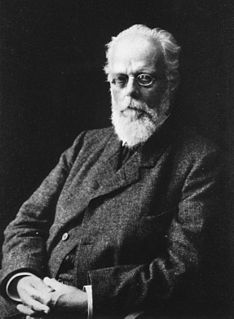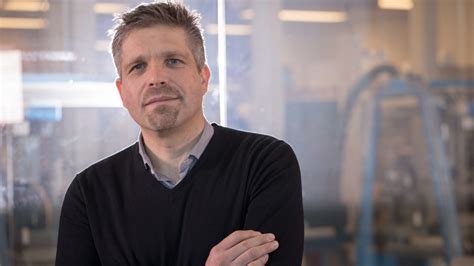A Quote by John B. S. Haldane
An attempt to study the evolution of living organisms without reference to cytology would be as futile as an account of stellar evolution which ignored spectroscopy.
Related Quotes
Darwinian evolution is slow and gradual, step by step. Such an evolution can explain micro-evolution but not macro-evolution. For example, how did the eye evolve? The idea behind Darwinism is that organisms adapt, and that nature selects only those genetic changes which are the mutations that serve a good purpose for adaptation. So taken this way, the eye cannot develop gradually because one-thousandth or one-millionth of an eye would be of no value for survival. So generally this question rules out Darwinism as an adequate theory for macro-evolution.
We do not draw conclusions with our eyes, but with our reasoning powers, and if the whole of the rest of living nature proclaims with one accord from all sides the evolution of the world of organisms, we cannot assume that the process stopped short of Man. But it follows also that the factors which brought about the development of Man from his Simian ancestry must be the same as those which have brought about the whole of evolution.
Is evolution a theory, a system, or a hypothesis? It is much more it is a general postulate to which all theories, all hypotheses, all systems must henceforward bow and which they must satisfy in order to be thinkable and true. Evolution is a light which illuminates all facts, a trajectory which all lines of thought must follow this is what evolution is.
Molecular evolution is not based on scientific authority. . . . There are assertions that such evolution occurred, but absolutely none are supported by pertinent experiments or calculations. Since no one knows molecular evolution by direct experience, and since there is no authority on which to base claims of knowledge, it can truly be said that . . . the assertion of Darwinian molecular evolution is merely bluster.
We started off with physical evolution and got our form. Then we somehow developed language, which meant cultural evolution could race so we could change our behavior really quickly instead of over hundreds and hundreds of years. And then comes moral evolution, which means we're not frightfully far along with people. And maybe we end up with a spiritual evolution, which is this connectedness with the rest of the life forms on the planet.
If belief in evolution is a requirement to be a real scientist, it’s interesting to consider a quote from Dr. Marc Kirschner, founding chair of the Department of Systems Biology at Harvard Medical School:
“In fact, over the last 100 years, almost all of biology has proceeded independent of evolution, except evolutionary biology itself. Molecular biology, biochemistry, physiology, have not taken evolution into account at all.
Evolution is promoted by its practitioners as more than mere science. Evolution is promulgated as an ideology, a secular religion - a full-fledged alternative to Christianity, with meaning and morality. I am an ardent evolutionist and an ex-Christian, but I must admit that in this one complaint - ...and Mr. Gish is but one of many to make it - the literalists are absolutely right. Evolution is a religion. This was true of evolution in the beginning, and it is true of evolution today.



































